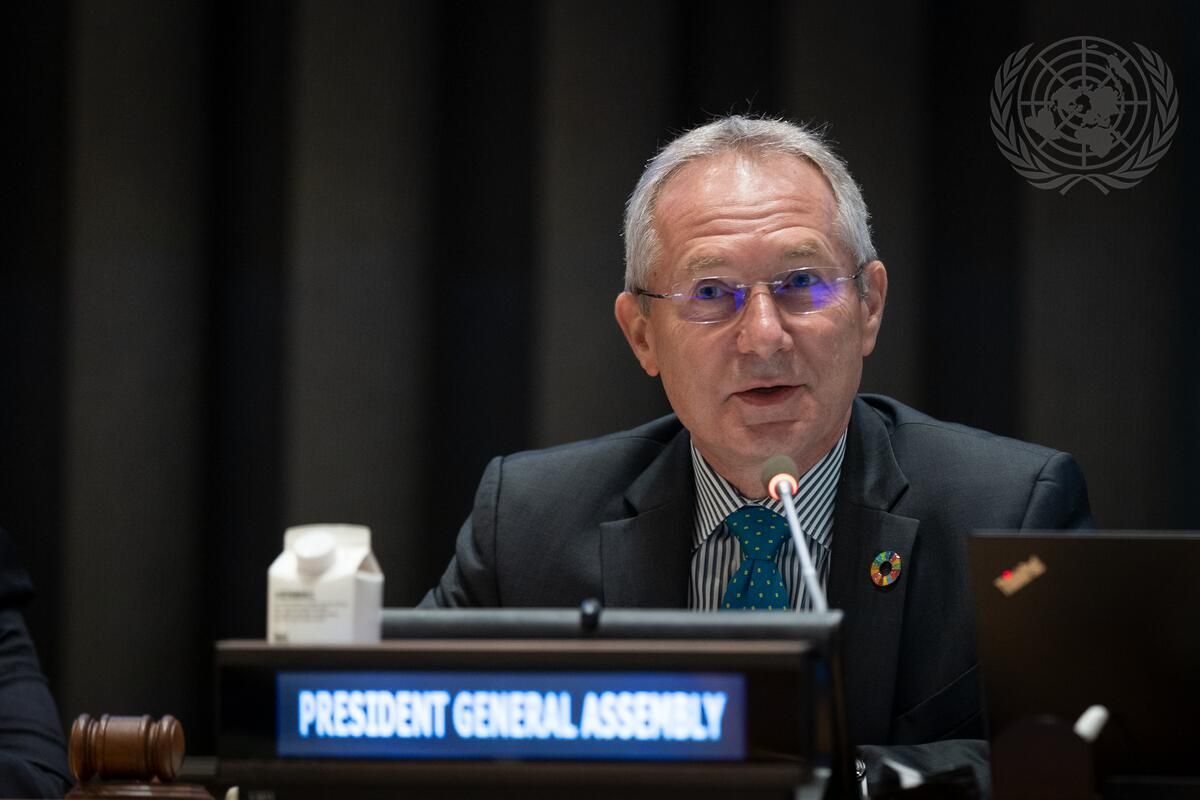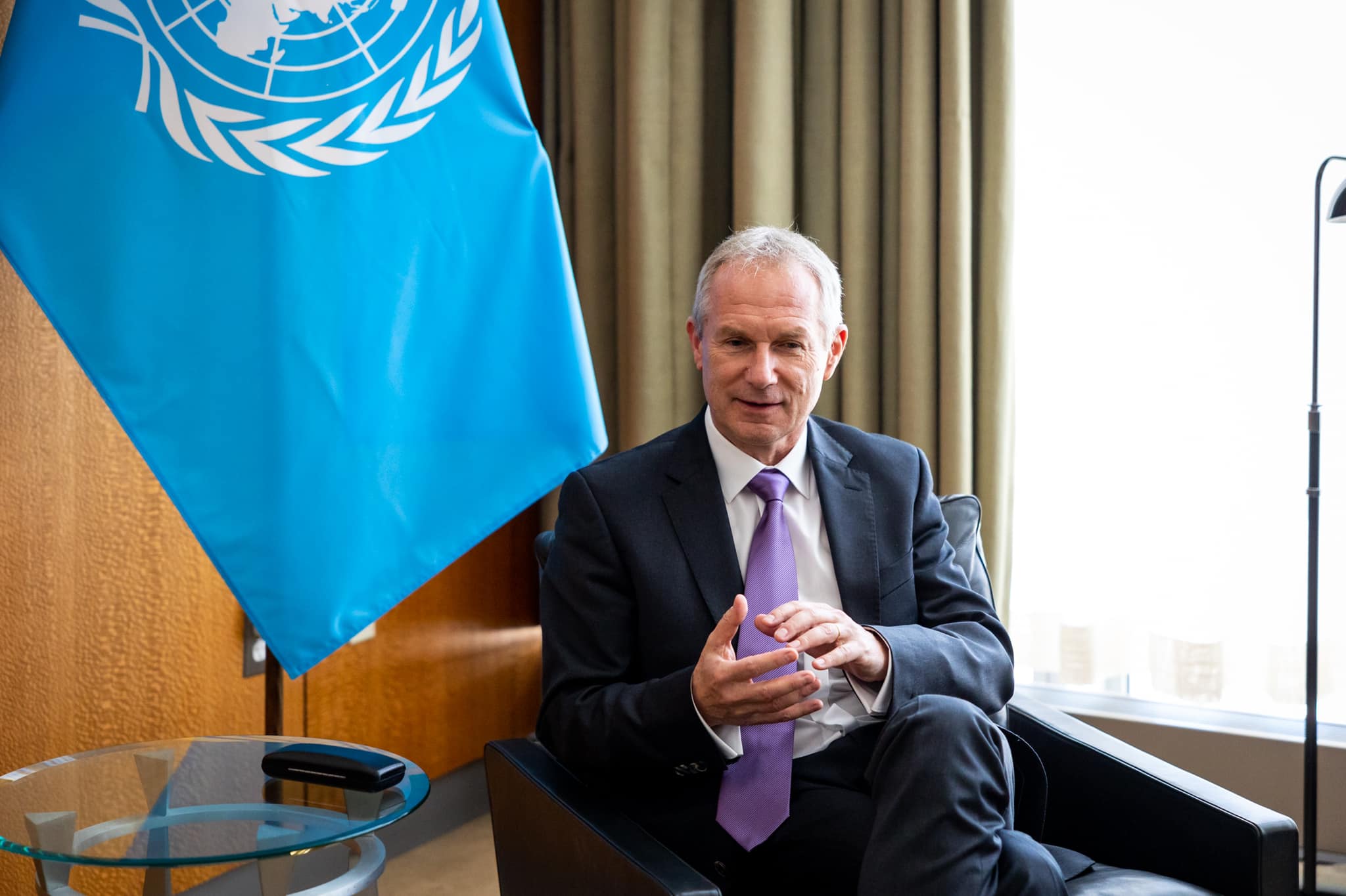
The current situation is pushing sustainability and climate protection into the background, according to Csaba Kőrösi.Continue reading
The world is at a new chapter in history, which has become visible in the past year, Csaba Kőrösi, current President of the 78th United Nations General Assembly, told MTI in an interview.
Assessing his year in the presidency, Csaba Kőrösi said: “What was only a prediction last year is now a fact, i.e. that we are entering the deepest, most complex, most serious crisis of the last 70 years.”

Csaba Kőrösi, current UN General Assembly President. Photo: Facebook/Novák Katalin Official
One of the ingredients of change the president described, is the emergence of a new world order, of which a very serious part is a geopolitical battle. “Whether this will result in a bipolar or multipolar world is a matter for the coming months, or perhaps years, but its impact on all other processes is very strong,” he stressed, adding that two major powers are trying to organize the world along a conflict logic.
The war in Ukraine has also created a new situation within the UN, and the question arises whether it is the core values of the organization that are being lost or the UN itself,
he pointed out.
As for the chances of ending the war, he said that last December, in his capacity as President of the UN General Assembly,
he had a proposal to Kiev and Moscow for a 90-day ceasefire, but before it could be made public, signals came from both capitals that “it was not time for a ceasefire.”
There seems to be a winning military logic on both sides, with international supporters, he emphasized.
“I am afraid that the clear, overwhelming victory that each side believed or believes in will not happen in the foreseeable future,” he said, adding that “there will come a moment when, perhaps thanks to quiet, behind-the-scenes talks, the parties will have to sit down for a serious negotiation, but it will not be this week, perhaps not next week.” He believes that “in a very, very lucky scenario,” such a negotiation could start this year.
On the UN, Kőrösi emphasized that
the world body must undergo reforms in order to preserve its core values, to enforce them, and to serve its 193 member states better, or at least to the same extent as it does now.
“There is still a chance to save humanity from hell” at the UN, but it will require very serious changes to the organization, he explained.
On global processes, he commented, “the world is rushing into a tsunami of unsustainable crises,” some of whose elements are already here, including the climate crisis, the water crisis, biodiversity loss, the food crisis, and the energy crisis. He pointed out that an unfortunate part of the current reality is that wars and conflicts are now taking precedence over the implementation of the sustainability turnaround, meaning that
problems with water, climate, food, disease, epidemics, and oceans will not go away; there is not enough time, energy, and money for them now, but they will have to be made up for later.
Regarding the transformation of the world towards sustainability, he said that the UN has room for maneuver in this area, as there are international agreements on this and important documents have been adopted in the last year. However, he pointed out that
only 12 percent of the Sustainable Development Goals (SDGs), adopted 7.5 years ago for a 15-year period, had been met by the mid-term.
With the commitment of the world’s leaders, the goals can still be achieved, if not by the set deadline, but there is no alternative to a turnaround, because if it does not happen, not everyone will survive the next 20 years, the Hungarian diplomat added. The UN will hold a major international meeting in New York in September to review and assess progress on the Sustainable Development Goals. The results of science and technology can help to achieve these targets, he said, noting that
one of the priorities of his General Assembly presidency was to involve science as much as possible in the processes.
Kőrösi said that science-based process evaluation had become a cornerstone of the assembly’s work. He explained that four or five areas of technological development will almost completely transform the world, which can even be put at the service of sustainability goals. These include the explosive growth of artificial intelligence, cold fusion energy production, biogenetics and life sciences’ impact on everyday life, as well as quantum computing.
“What was yesterday will be the distant past the day after tomorrow,” summed up the outgoing Hungarian President of the UN General Assembly, illustrating the speed of progress, adding that the United Nations has a role to play in controlling technological processes in order to serve human well-being, justice and peace, and not pose a threat to humanity.
Featured image: Photo: Facebook/United Nations Visitors Centre